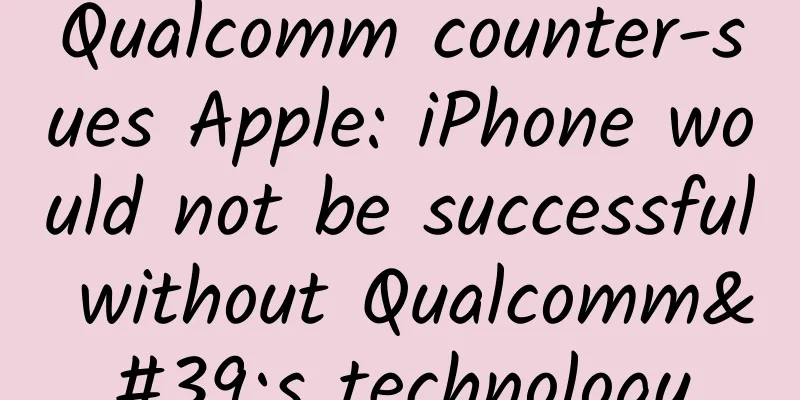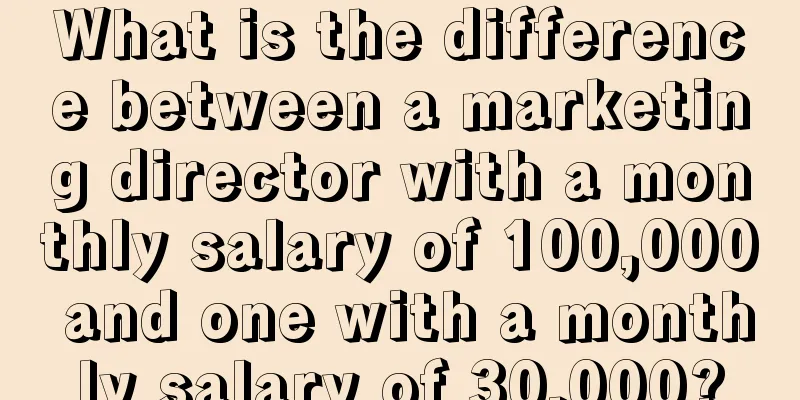Qualcomm counter-sues Apple: iPhone would not be successful without Qualcomm's technology

|
Qualcomm today filed a response and counterclaim in response to Apple's $1 billion patent fee lawsuit against Qualcomm in the U.S. District Court for the Southern District of California in January this year. In its filing, Qualcomm detailed the value of the technology it invented, contributed, and shared with the industry through its licensing programs, and pointed out that Apple failed to negotiate in good faith with Qualcomm to obtain a license to use Qualcomm's 3G and 4G standard essential patents on fair, reasonable, and non-discriminatory terms. The lawsuit states that Apple: 1. Violated the agreement with Qualcomm and misinterpreted the agreement and negotiation contents with Qualcomm; 2. Interfered with the long-term agreement between Qualcomm and Qualcomm’s licensees that manufactured iPhones and iPads for Apple; 3. By misrepresenting facts and providing false statements, it encouraged regulators in different regions around the world to attack Qualcomm's business; 4. Choosing not to fully utilize the performance of Qualcomm’s modem chips in its iPhone 7 phones, misrepresenting the performance differences between different iPhone phones with Qualcomm modems and those with modems from other suppliers; 5. Threaten Qualcomm and attempt to prevent it from making public comparisons of the superior performance of iPhones equipped with Qualcomm products. Qualcomm has filed multiple claims, including one seeking damages from Apple for breach of promises in multiple agreements and asking the court to order Apple to stop interfering with Qualcomm's agreements with manufacturers that make iPhones and iPads for Apple. “Without Qualcomm’s core cellular communications technologies, Apple would not have been able to create the successful iPhone line, become the world’s most profitable company and capture more than 90 percent of all smartphone industry profits,” said Don Rosenberg, executive vice president and general counsel of Qualcomm. “Now, after 10 years of historic growth, Apple refuses to recognize the proven and enduring value of these technologies. Apple has launched a global attack on Qualcomm and is attempting to use its enormous market power to coerce Qualcomm into accepting unfair and unreasonable licensing terms. We will vigorously defend our business model and Qualcomm’s right to fair value for its technological contributions to the industry.” On January 20 this year, Apple filed a lawsuit against Qualcomm in the United States, claiming that Qualcomm illegally exploited its monopoly in the field of mobile phone chips and demanded that Qualcomm return about $1 billion in patent royalties that it had promised to return. Less than a week later, the lawsuit spread to China. Apple filed two lawsuits against Qualcomm in China at the time, one for Qualcomm's alleged abuse of its market dominance and the other for a dispute over the licensing conditions for Qualcomm's standard essential patents. In the early morning of January 26, Don Rosenberg, executive vice president and general counsel of Qualcomm, said that Apple just wanted to pay less patent fees. Qualcomm's patent licensing standards in China meet the requirements of the National Development and Reform Commission of China, and we will defend our business model. In fact, Qualcomm's patent licensing fee collection model has been the subject of many lawsuits in recent years. According to data, between 2009 and 2016, Qualcomm was fined a total of more than $4 billion worldwide for monopoly or obstruction of fair competition. As early as 2015, it encountered an antitrust investigation in China, was fined US$975 million by China's National Development and Reform Commission, and was ordered to adjust its patent licensing model. At the end of December 2016, the Korean antitrust regulator, the Korea Fair Trade Commission (hereinafter referred to as the "Korea FTC"), announced that Qualcomm abused its market monopoly position, hindered competition when licensing patents and selling smartphone chips, forced mobile phone manufacturers to pay for some unnecessary patents, and refused to license standard essential patents to other modem chip manufacturers. This behavior hindered competition. Therefore, it was decided to issue a fine of about 1 trillion won (about 5.9 billion yuan) to Qualcomm, setting a record for antitrust fines in Korea. Not only that, Qualcomm also got into a patent dispute with Chinese smartphone manufacturer Meizu last year. Meizu said at a media communication meeting at the time that it was willing to pay patent fees to Qualcomm, but one of its demands was that it hoped for fair, reasonable and non-discriminatory negotiations, rather than Qualcomm's unilateral black box contract offer. After vivo, OPPO, Gionee and others reached a patent licensing cooperation with Qualcomm, Meizu finally reached a settlement with Qualcomm and paid the relevant fees. As a winner of Toutiao's Qingyun Plan and Baijiahao's Bai+ Plan, the 2019 Baidu Digital Author of the Year, the Baijiahao's Most Popular Author in the Technology Field, the 2019 Sogou Technology and Culture Author, and the 2021 Baijiahao Quarterly Influential Creator, he has won many awards, including the 2013 Sohu Best Industry Media Person, the 2015 China New Media Entrepreneurship Competition Beijing Third Place, the 2015 Guangmang Experience Award, the 2015 China New Media Entrepreneurship Competition Finals Third Place, and the 2018 Baidu Dynamic Annual Powerful Celebrity. |
Recommend
The Sun family of the Three Kingdoms: Tears in my eyes, the imperial seal has ruined their lives!
Mixed Knowledge Specially designed to cure confus...
Chrome browser also opens the Material Design style
It’s not that Google hasn’t considered giving Chr...
A brief history of operations: 20 years of development and evolution of Internet operations (continued)
(Continued from the previous article) 2009-2013: ...
The fastest growing IT jobs
[51CTO.com Quick Translation] The number of IT pr...
[Popular Science of Chinese Military Technology] How does armor perspective technology allow tank soldiers to use "hacks"?
With the progress of the times, the wide area and...
Tips for attracting new users on Pinduoduo APP!
This article is an analysis of Pinduoduo's ca...
Some advanced ways to play with Moments
The topic of this issue is: Some high-level ways ...
Why is Flammulina enoki called "See you tomorrow"? It turns out that I have always misunderstood it...
Expert of this article: Pa Lize, Chief Physician ...
Is your heart beating like a rocket? That's not your illusion...
Author: Liu Yanan Beijing General Hospital of Civ...
Seven reasons why people hate IT
[51CTO Quick Translation] The emergence of techno...
Guangzhou server hosting costs, Guangzhou server rental service providers
In this era of Internet big data, fewer and fewer...
A project that makes money out of nothing, you can earn over ten thousand yuan a month without spending a penny!
I saw a news report these days that said a house ...
You want to protect your privacy but it hurts your eyes. Is anti-peep film a "tax on your IQ"?
Review expert: Zhou Hongzhi, senior laboratory te...
How did I manage to attract one user with a small activity costing 1 yuan?
As a means with extremely strong explosive power ...









